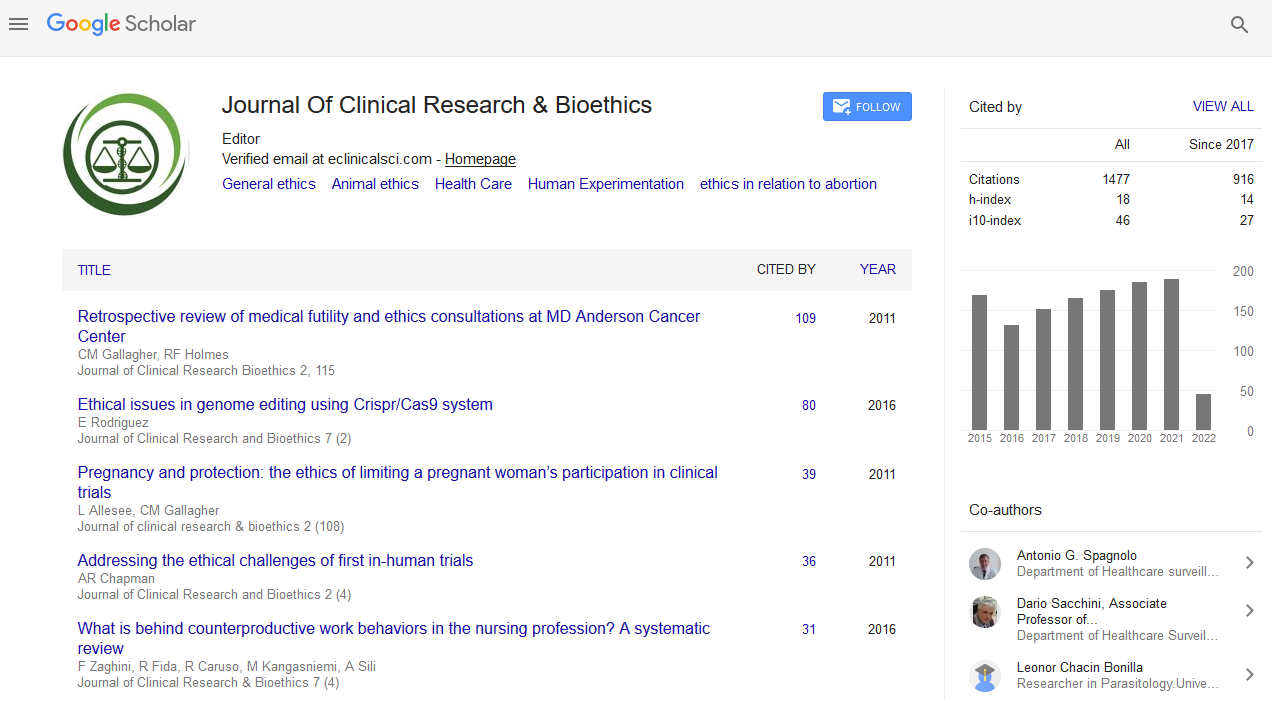PMC/PubMed Indexed Articles
Indexed In
- Open J Gate
- Genamics JournalSeek
- JournalTOCs
- RefSeek
- Hamdard University
- EBSCO A-Z
- OCLC- WorldCat
- Publons
- Geneva Foundation for Medical Education and Research
- Google Scholar
Useful Links
Share This Page
Journal Flyer

Open Access Journals
- Agri and Aquaculture
- Biochemistry
- Bioinformatics & Systems Biology
- Business & Management
- Chemistry
- Clinical Sciences
- Engineering
- Food & Nutrition
- General Science
- Genetics & Molecular Biology
- Immunology & Microbiology
- Medical Sciences
- Neuroscience & Psychology
- Nursing & Health Care
- Pharmaceutical Sciences
Abstract
Can Influenced Choices be Consented? A Qualitative Study Involving Patients with Severe Uncontrolled Asthma Participating to Clinical Trials
Objective
Severe asthma is a difficult condition to treat; high-dose corticoids may ultimately represent a risk for patients and are not always enough to relieve them. Some find they in a therapeutic dead-end and have no other perspective than a clinical trial to help them to acquire a better quality of life and no long fearing a life-threatening exacerbation.
With such a strong influence in their decision, was it still consent or a coerced choice?
Methods
The study used a qualitative descriptive design consisting of 20 face-to-face interviews of patients with severe uncontrolled asthma who have consent to clinical trials in Marseille, France. Transcribed interviews were analyzed through thematic content analysis then discussed using philosophical tools.
Results
Two main themes have emerged: (1) the confusion between constraint and influence concerning the disease and the consent itself (2) the important role of the medical staff in the patient consent whom have a full confidence in their judgment. Patients are often confused when they talk about their decision making but when they think through, they feel like they had the choice and they were grateful to be able to participate. They also rely on their doctors to explain the forms instead of reading them, thus risking giving a not so informed consent.
Conclusion
Patients were performing voluntary actions in a context repressing their freedoms, but not annihilating it. They were not forced by others to integrate the protocol, they were influenced by the disease but they decided freely and voluntarily, so in this situation, influenced choices can be consented. However, relying only on doctors’ intelligences instead of reading consent forms remain an ethical issue because of the potentially biased lightening it implies.


